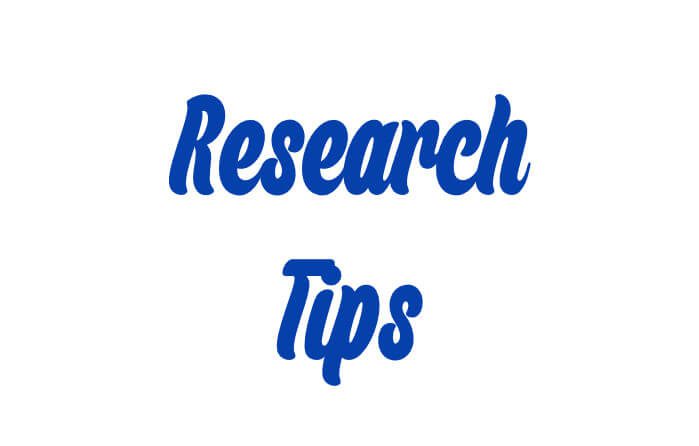7 Research Tips Guaranteed to Improve Your Grades
OK, this sounded like a great topic to discuss when I was picking it. But when I started writing, I quickly realized I was going to go a bit off script. On this note, forgive me if this article takes a bit of a U-Turn but I assure you, just like most of my articles, it will be extremely informative.
Let’s start with a definition because I believe it always sets the pace of an article. Research is “creative and systematic work undertaken to increase the stock of knowledge, including knowledge of humans, culture and society, and the use of this stock of knowledge to devise new applications. On the other hand, a research paper is a piece of academic writing based on its author’s original research on a particular topic, and the analysis and interpretation of the research findings. It can be either a term paper, a master’s thesis or a doctoral dissertation.
Here are my recommendations for you when you are conducting research and writing a research paper;
Define research as it applies to the specific assignment or discipline
It would come as no surprise to you that my first research tip is for you to define. This, however, doesn’t mean you should write it out in your paper. But it is important for you to confirm exactly what kind of research you’re doing and in turn what kind of paper you’re writing.
Setup a schedule and stick to it
Make sure your personal deadline is at least 1 week earlier than the required deadline. If you’re going to meet your deadline and provide a quality piece of work, then you’re going to have to setup a schedule. Divide your work into parts and allocate time stamps to each of them.
Ask a Thesis Question Early
You have to ask this question very early. I probably should have mentioned it before the scheduling. But… well I’m mentioning it now. Any research paper needs to provide the answer to one specific question, to solve the problem. You should set the thesis of your work in the very beginning of the research. The specific topic will help you avoid information that is irrelevant to your work and take into account just information that is really important and closely connected to your paper. Gathering a lot of unnecessary information can mislead you and turn your work into a mess that can otherwise be easily avoided.
Develop an outline
Once again, this is a point I could have made before recommending scheduling, because I believe you will have to reschedule micro tasks within your outline. But regardless, after asking the thesis questions, you need to develop an outline and break your research into logical parts.
The thesis will help you not to get lost in all the information space and also help you to specify your information needs and structure, which will further help you isolate from this space the not so important, but very valuable facts necessary for developing your topic and confirming your point of view.
Furthermore, by breaking down your work into parts, you will easily find out which information is missing, and set aside some time to look for it. This means you will have set aside enough time for editing the paper as all the information is gathered, and also save yourself the unnecessary stress as there will not be any reason to worry when your work reaches its finishing stages.
The Internet is your friend
Yes, I know you’re already on the internet that’s why you’re reading this article. But there’s more to using the Internet than just reading articles and journals. First, I’ll recommend you read articles on Wikipedia. But please use it once. It gets very tempting to copy and paste facts from Wikipedia especially in research assignments. Because let’s face it, half your class would do that and where would you be then. Failing along with them, most likely.
I also seriously recommend plagiarism checkers and grammar checkers. Which are both points that could easily be points of their own, but I decided to add it to this because I’ve already spoken about them a lot. Check out this article on why you need these tools and how they work.
Take quick notes and organize when it’s time
Ideas come all of a sudden. While making your research always have a notebook and a pen. Sometimes you could gather inspiration from unconventional sources.
You could watch the movie or listen to the radio and catch interesting information.
Even if it is not exactly the information you need, it may be something similarly related to your topic. What could help you better remember and develop it? Writing it down. Moreover, it gives you more sources which will make your work more valuable and authoritative.
Be logical and accurate. Also, always remember to give credit to whom credit is due. Attach links to your sources for more clarification and accountability.
Make citations correctly and check the source of quoted words very carefully
This may sound like too much repetition, but I cannot stress this enough. You have to be very careful when it comes to citations. It’s important to cite your references properly. And please take your time. This is where marks are lost, and you need all the points you can get.
So those are my tips and what I use when conducting research. I hope they help you.

